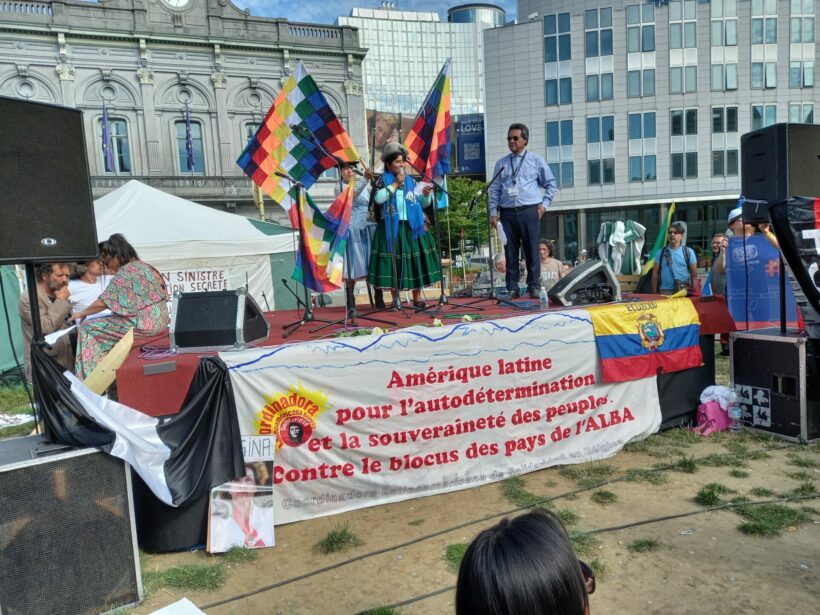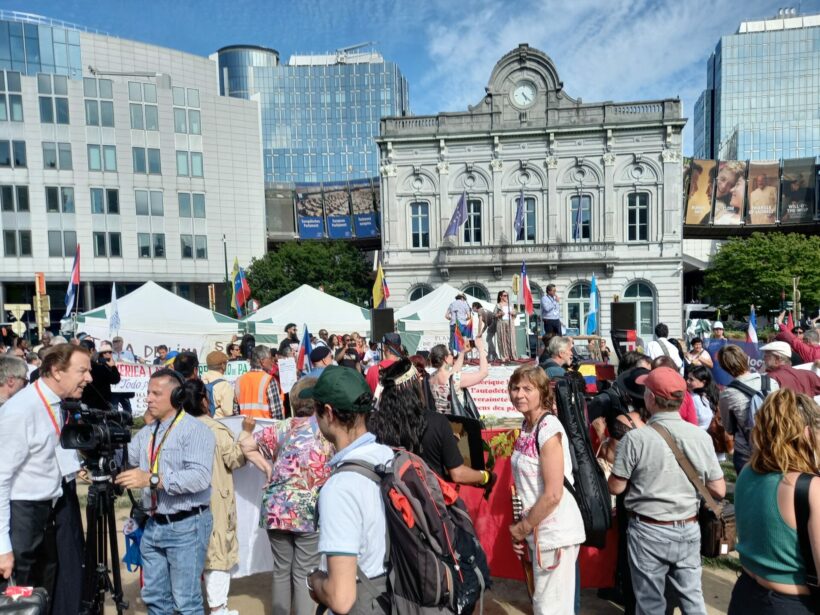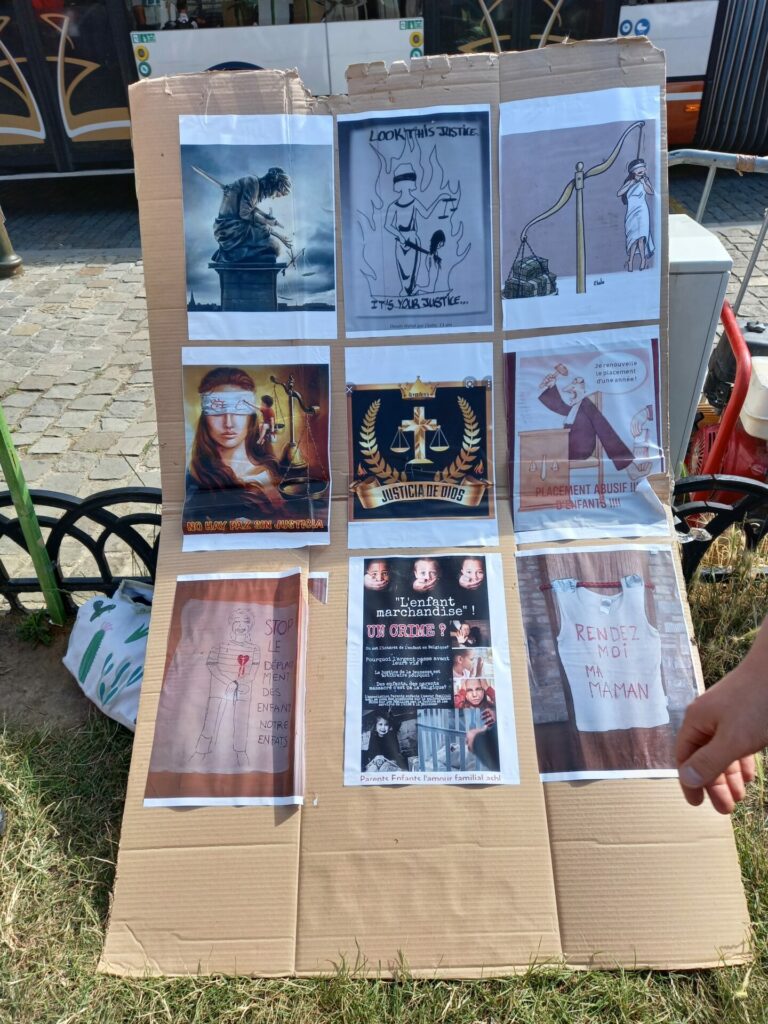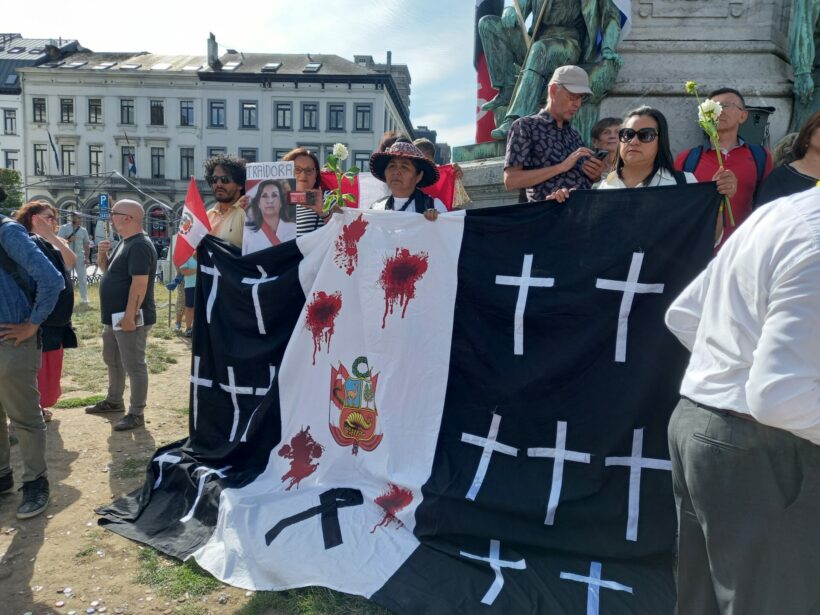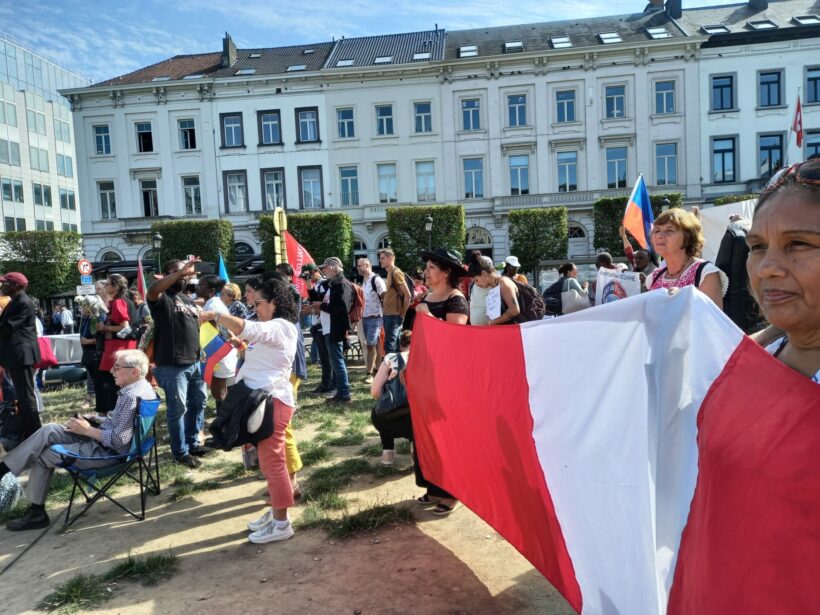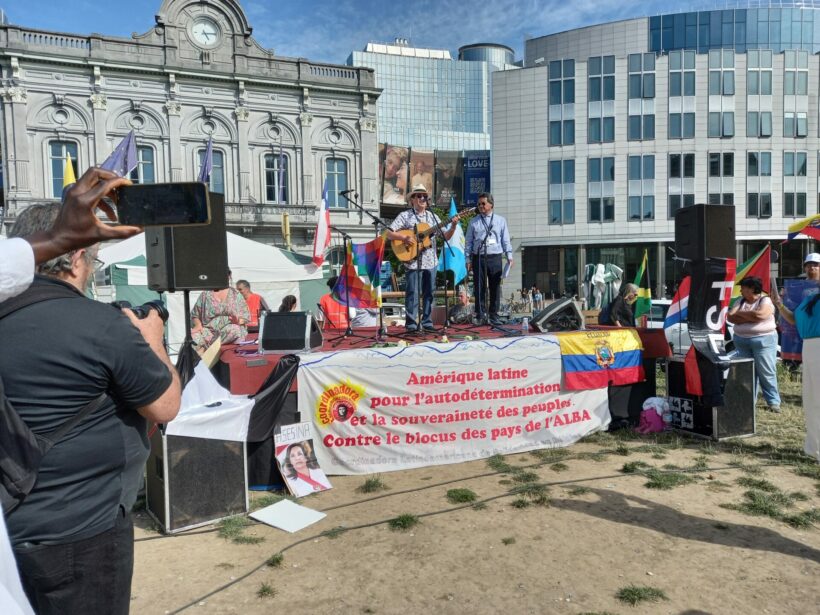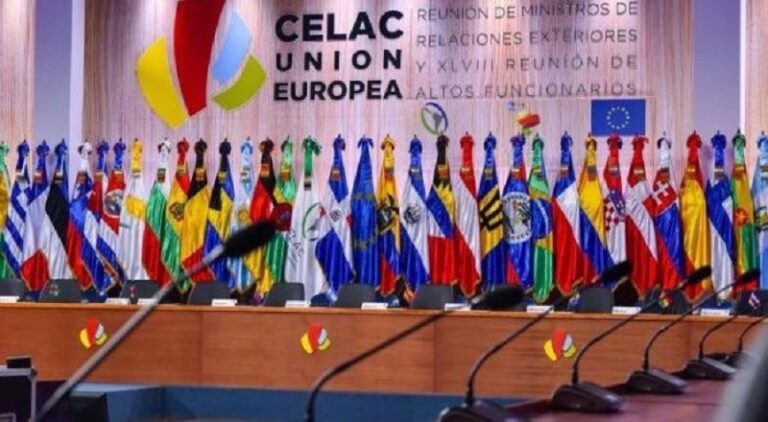On July 17 and 18 [,2023], two Latin American-Caribbean summits were held in Brussels: the first, on the prestigious premises of the European Union, for a meeting between Latin American presidents and European leaders (CELAC-EU).
The second, the “People’s Summit”, was held at the VUB (the Dutch University of Brussels) and brought together hundreds of associations, trade unions and NGOs to reflect together on solutions outside the beaten track of neo-colonialism.
The issues at stake at the first summit meeting: Ukraine and trade.
It took eight years for a summit of this kind to be held between the leaders of Latin American and the Caribbean countries (33 countries) and those of the European Union. In the imposing buildings of the European institutions, the European interests were not in line with those of their Latin American counterparts! While the European Union sought to rally support for Ukraine, Brazil refused to supply arms to Ukraine or impose sanctions against Vladimir Putin’s Russia. President Luiz Inacio Lula da Silva has provoked controversy by repeatedly asserting that responsibility for the conflict is shared, even though he has condemned Russia’s invasion of Ukraine. And countries such as Cuba and Venezuela have clearly reiterated their alliance with Moscow.
Of course, the economic aspect of resources remains a priority at these meetings, and lithium, for example (present in Argentina and Bolivia), without which the energy transition planned by Europe will not happen, is of obvious interest to the European Union. Argentina is one of the world’s leading producers of this mineral, and together with Bolivia and Chile forms the “lithium triangle”, with nearly 56% of the world’s reserves. At the end of June, Bolivia announced that China and Russia would invest $1.4 billion to open two lithium mines in the country.
In the run-up to the summit, the head of the German diplomacy, Annalena Baerbock, toured the region in mid-June (Brazil, Argentina, Chile and Mexico), announcing a €10 billion boost to European investment through the “Global Gateway” strategy, designed to counter the influence of China’s New Silk Roads program.
The Mercosur Treaty on food trade between countries, an agreement sometimes hoped for by Latin America and feared by European farmers, is also at the heart of negotiations.
Stay tuned!
The other summit: citizens as agents of change
At the same time as the prestigious meeting [mentioned], another alternative summit, that of the “peoples”, was held in the VUB buildings, bringing together around a hundred NGOs, trade unions, farmers’ associations and citizens.
Thousands of people thus took part in panels for reflection and sharing experiences, providing an opportunity for grassroots information and action. Here, priorities included climate change, social injustice and the necessary transformation of mentalities.
In the evening, at the Festival des Solidarités (Festival of solidarities), we were able to sing along to the sounds of the following groups:
Sindicato Sonico (Mexico, Cuba, Honduras, Chile, Spain and Belgium), César, Osvaldo Torres and Silvia Balducci (Chile, France, Belgium, Italy), Ismaël Querales (Venezuela) and Animation Brésil (Brazil, France).
Between these different performances, messages of struggle and hope. Jean-Luc Mélenchon (NUPES- France), Cristina Faciaben (CCOO trade union, Spain), Hilal Sor (ABVV Métallos, Belgium), Raoul Hedebouw (PVDA, Belgium), Paula Polanco (Intal, Belgium), Jeremy Corbyn (United Kingdom). The presidents of Bolivia, Cuba, Venezuela and Colombia also came to lend their support to the living force of their peoples. Poignant speeches, punctuated by slogans shouted and sung by the crowd… a warm atmosphere, vibrant with emotion and strength.
I listened to Mélenchon’s (France) anti-capitalist speech, then Miguel Díaz-Canel’s denunciation of the boycott against Cuba, followed by the Bolivian and Colombian presidents. All gave magnificent speeches, and took up the songs and slogans chanted by the audience.
It was a very moving atmosphere, a great joyful human force, lots of young people, women, proud of their origins, full of hope for the future.
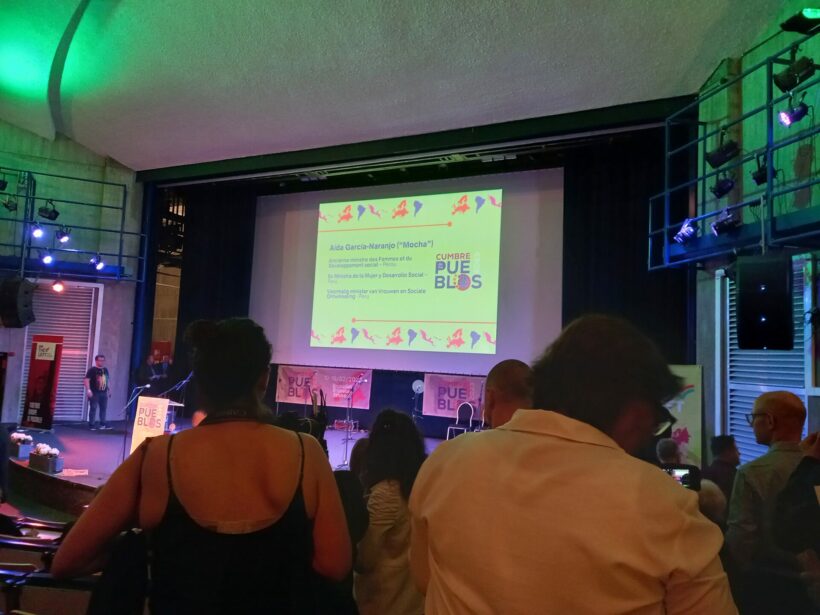
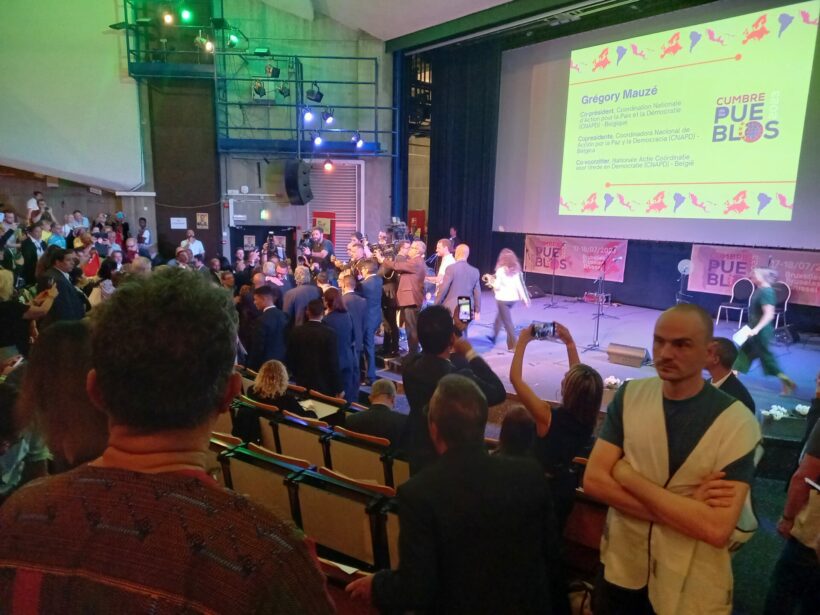
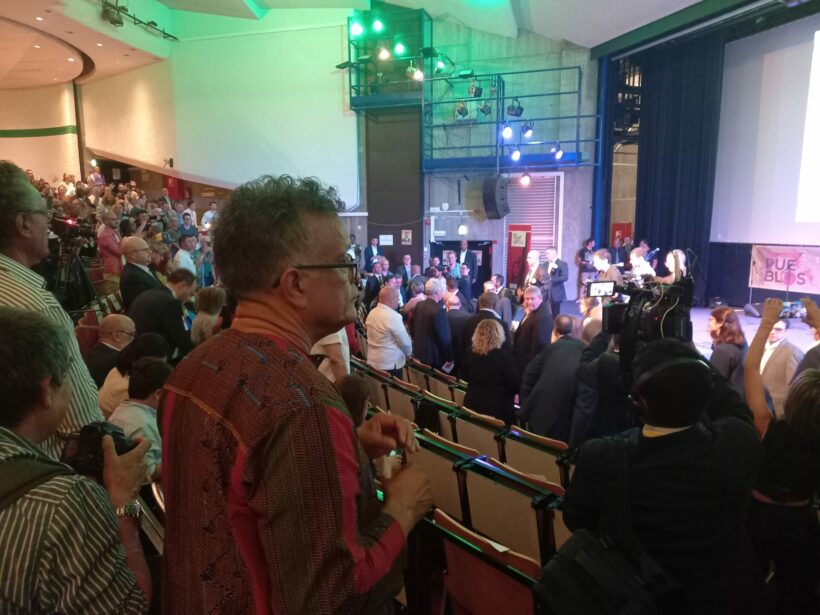
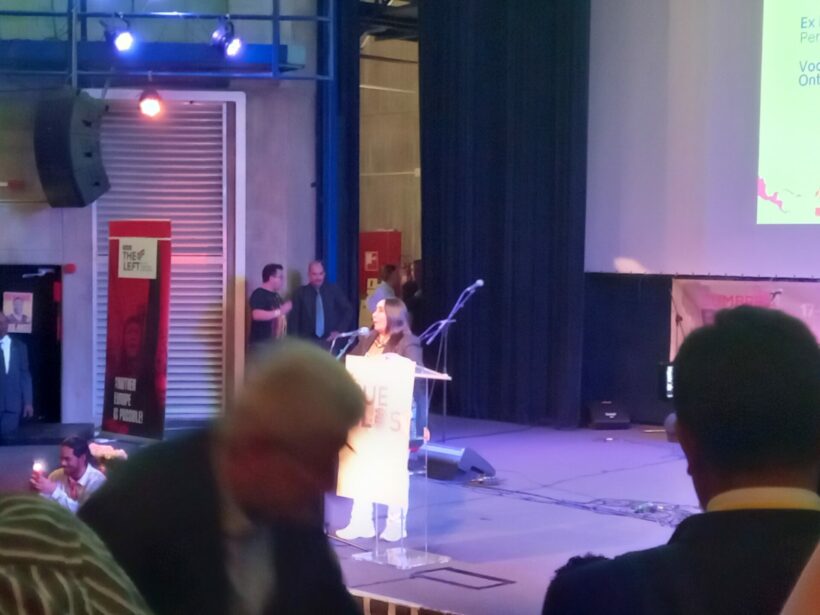
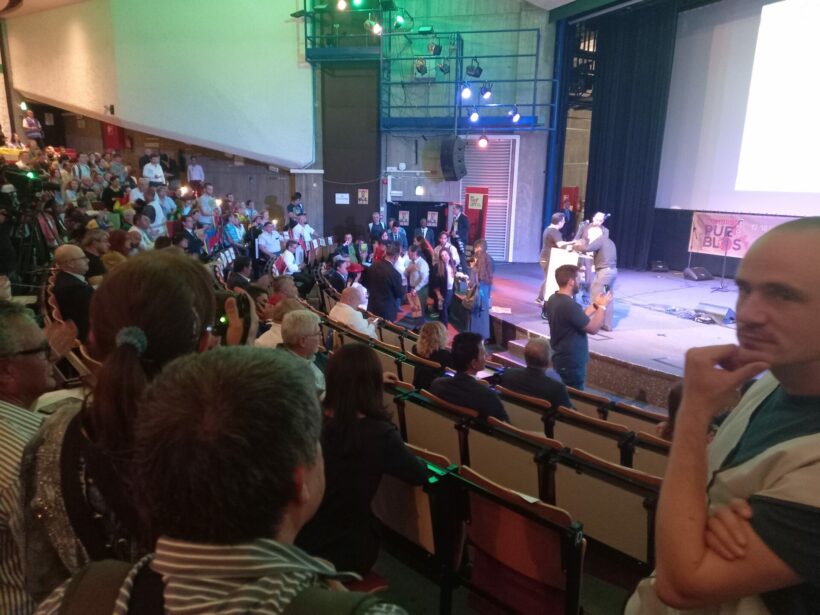
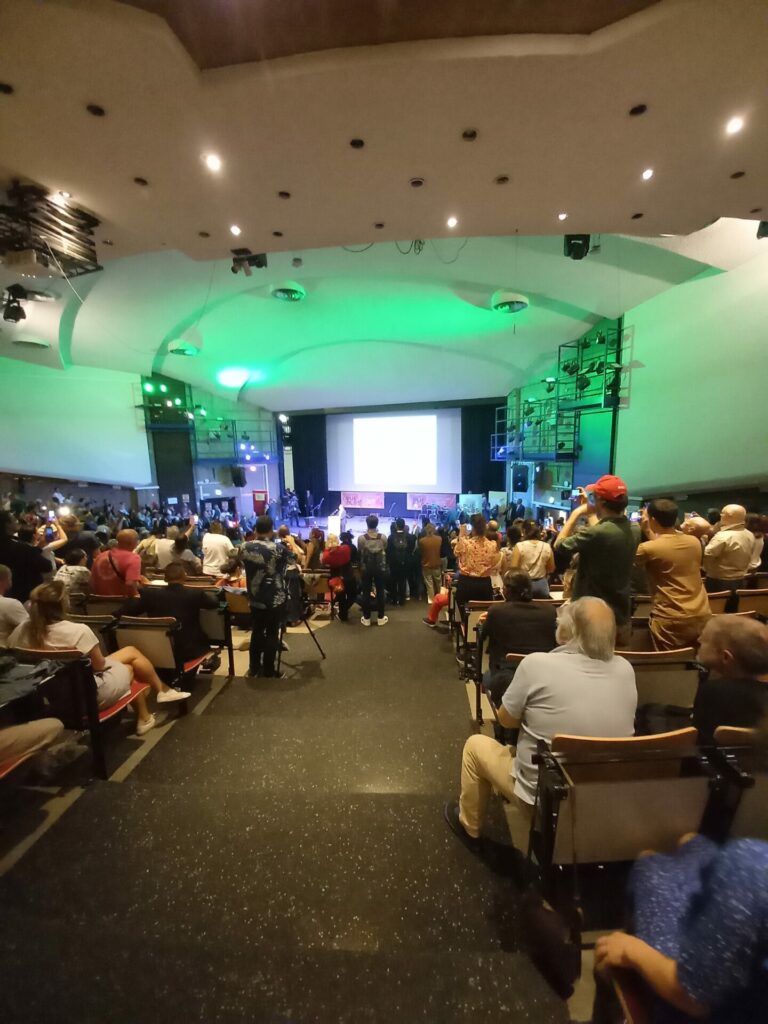
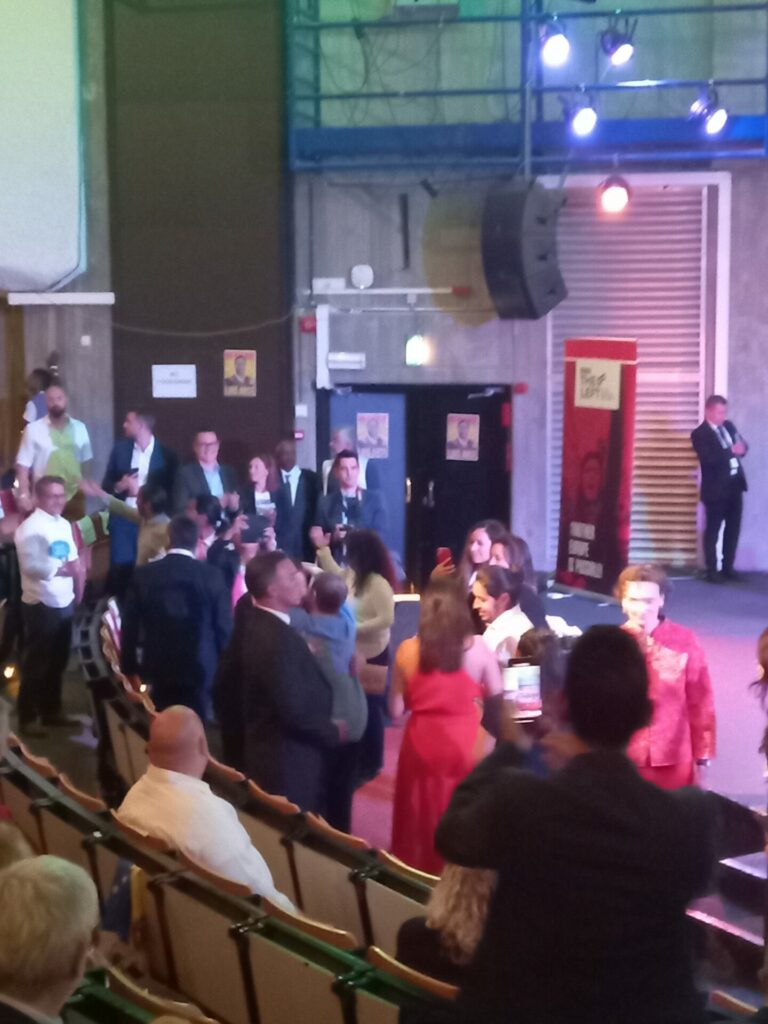
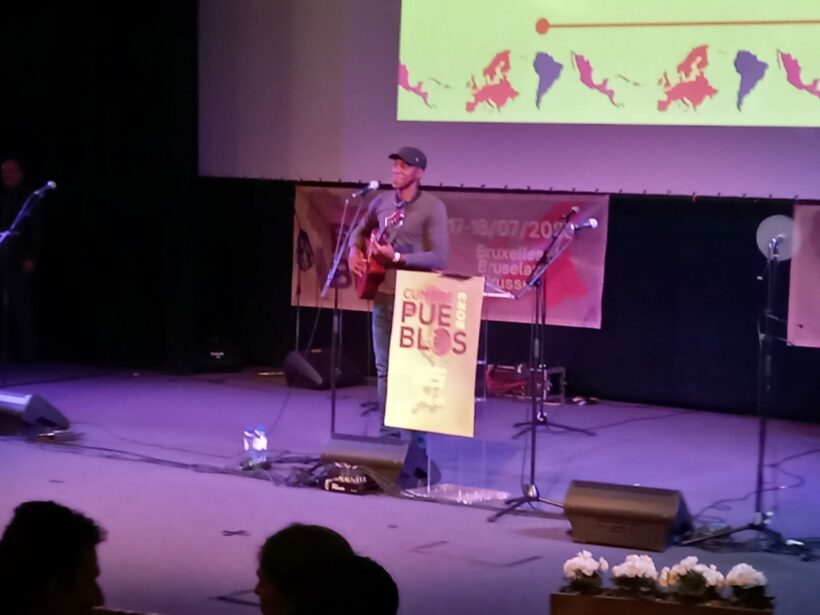
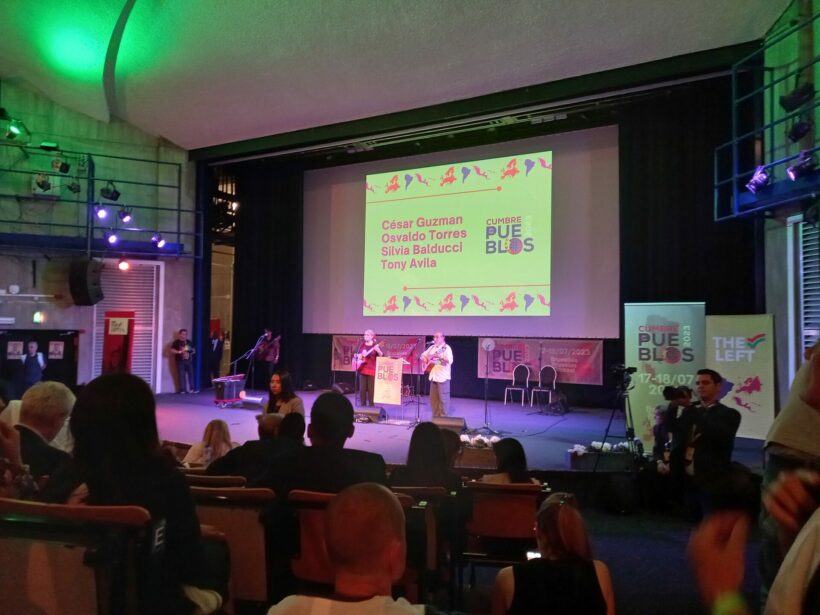
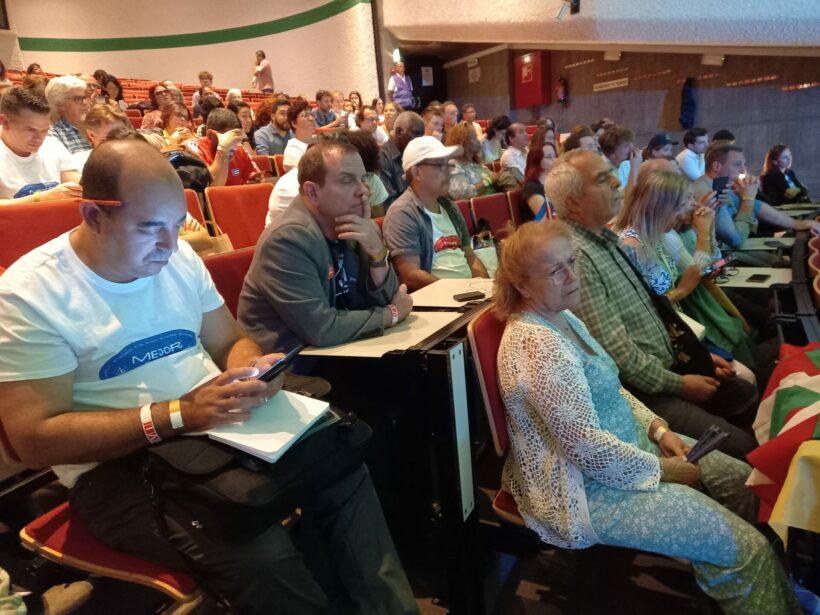
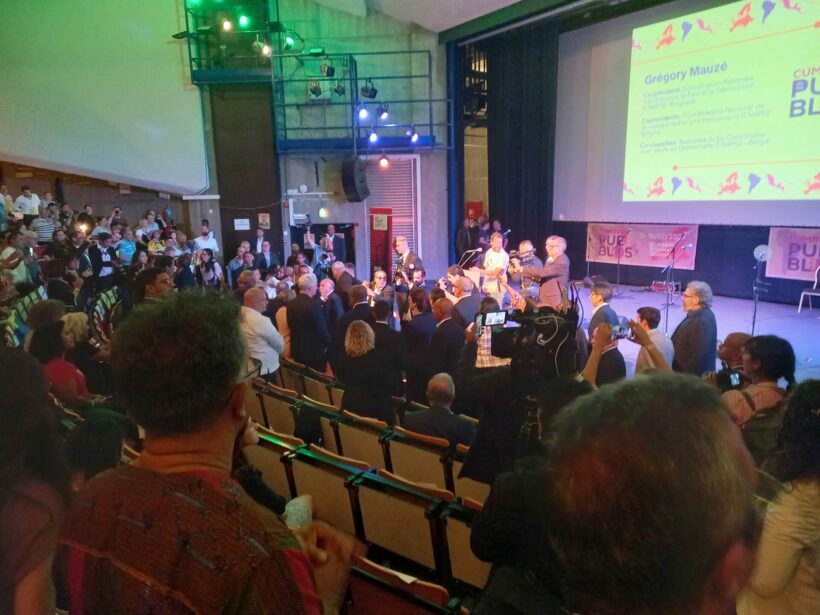
From the bottom of our hearts, let’s hope that this shared emotion will result in the courageous decisions that are so necessary in these uncertain times.
Some pictures [showing] the variety of demands made at the solidarity demonstration organized by the Coordinadora Latinoamericana (Latin American Coordinator) in Place du Luxembourg, Brussels.
Bolivian representative of the Bartolina Sisa group
